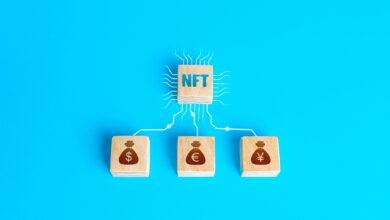Crypto Cash – Profiting in the Gig Economy

In an increasingly interconnected world, the gig economy has emerged as a defining feature of our modern landscape. This dynamic environment, characterized by flexible work arrangements and the proliferation of freelance opportunities, is now embracing the transformative potential of cryptocurrency. As we delve into this intersection, it becomes evident that blockchain technology is not merely an ancillary tool; rather, it is a fundamental catalyst for innovation in how individuals earn and transact in a digital realm.
The collaborative economy, which thrives on sharing resources and skills, finds itself at the forefront of this technological revolution. By adopting blockchain, participants can facilitate trustless transactions, ensuring that every contribution is accurately rewarded. The integration of cryptocurrency within this framework allows for seamless exchanges, empowering workers to profit from their efforts without the encumbrance of traditional financial systems. In this tech-driven environment, earning becomes not just a possibility but a promise realized through decentralized mechanisms.
As digital currencies gain traction in the freelance economy, they redefine the parameters of what it means to make money online. No longer confined to conventional payment methods, freelancers are now able to receive compensation in cryptocurrencies, allowing for instant transactions across borders. This paradigm shift not only enhances financial inclusivity but also equips individuals with the tools necessary to thrive in an ever-evolving market. The sharing economy’s integration of cryptocurrency signifies a profound transformation–one where every participant can engage meaningfully and profitably in a virtual realm where value is decentralized yet universally recognized.
In summary, as we explore the convergence of the gig economy and cryptocurrency, we uncover a rich tapestry of opportunities for earning and collaboration. By leveraging blockchain technology, we are witnessing the dawn of a new economic landscape–one that fosters innovation, inclusivity, and an enduring spirit of collaboration among its participants.
The Gig Economy and Cryptocurrency: A New Frontier
In the contemporary landscape of work, the gig economy emerges as a transformative force, reshaping how individuals earn money in an increasingly digital world. This environment allows freelancers to navigate a myriad of opportunities, leveraging technology to connect with clients globally. As this shift accelerates, cryptocurrency enters the fray, offering a novel currency that aligns perfectly with the needs of gig workers who seek efficiency, security, and accessibility in their transactions.
The integration of cryptocurrency into the freelance economy is not merely an experiment; it represents a paradigm shift in how value is exchanged online. Freelancers are now able to receive payments in digital currency, which often bypasses traditional banking systems. This method not only reduces transaction fees but also enables instantaneous payments regardless of geographical boundaries. For instance, platforms like Bitwage facilitate wage payments in Bitcoin, allowing workers to receive their earnings in a virtual realm without the delays associated with conventional financial institutions.
Moreover, the sharing economy has begun to embrace these digital currencies as well. Services that rely on peer-to-peer interactions are ideally suited for cryptocurrencies, which can provide added transparency and trust through blockchain technology. By utilizing smart contracts–self-executing agreements with terms directly written into code–participants in the sharing economy can ensure that transactions are secure and reliable. This innovation empowers users to make money while minimizing risks often associated with traditional payment methods.
As the collaborative economy continues to grow, its adoption of blockchain technology signifies an important evolution within this tech-driven environment. Blockchain offers a decentralized ledger system that enhances accountability and traceability of transactions. For example, platforms like Ethereum enable developers to create decentralized applications (dApps) that facilitate collaborative projects while using cryptocurrency as the medium of exchange. This fosters a sense of community and trust among collaborators who might not have engaged otherwise.
Earning potential in this new digital landscape is significant and multifaceted. Freelancers who embrace cryptocurrency can tap into various avenues for income generation–from microtasks on platforms that pay in crypto to participating in decentralized finance (DeFi) projects where users can lend or stake their assets for interest. As such, the understanding and utilization of digital currencies become essential skills for those wishing to thrive in this evolving economy.
In conclusion, the intersection of the gig economy and cryptocurrency presents exciting opportunities for earning money in a virtual realm. As both sectors continue to evolve hand-in-hand, it becomes evident that those who adapt quickly will find themselves at the forefront of this innovative economic landscape. Embracing these changes not only enhances individual earning potential but also contributes to building a more inclusive and efficient economic framework for all participants involved.
Understanding the Gig Economy: The Freelance Economy Embraces Digital Currency
The gig economy has emerged as a significant force in the modern labor market, characterized by short-term contracts and freelance work rather than traditional employment. This shifting landscape allows individuals to engage in diverse opportunities, often facilitated by digital platforms. As this economy grows, it increasingly integrates innovative technologies such as cryptocurrency, providing new avenues for earning. Freelancers can now leverage digital currencies to receive payments, enhancing flexibility and accessibility in the financial realm.
In this evolving context, the freelance economy is not merely adapting to digital currency; it is wholeheartedly embracing it. Cryptocurrency offers distinct advantages, such as lower transaction fees and faster payment processes compared to conventional banking methods. For instance, platforms like Upwork and Fiverr are beginning to allow transactions in Bitcoin and Ethereum, enabling freelancers to profit from their skills without the barriers imposed by traditional financial systems. This shift not only simplifies payment but also opens up global markets for freelancers who may have previously been limited by geographic or economic constraints.
The sharing economy is another sector that has begun to integrate cryptocurrency into its operational frameworks. Companies like Airbnb and Uber, which thrive on shared resources, are exploring blockchain technology as a means of securing transactions and enhancing trust among users. By adopting cryptocurrency as a payment method, these platforms can offer greater transparency and security, mitigating risks associated with fraud. As a result, participants in the sharing economy can experience a more seamless and efficient process for making money in this virtual realm.
Furthermore, the collaborative economy is witnessing the adoption of blockchain technology, which serves as the backbone for secure peer-to-peer transactions. Blockchain’s decentralized nature eliminates intermediaries, allowing users to interact directly and efficiently. This innovation not only fosters a sense of community but also enhances earning potential for those involved. For example, smart contracts can automatically execute agreements between parties, ensuring that freelancers receive their payments promptly upon fulfilling their obligations.
In addition to improving transactional efficiency, integrating cryptocurrency into these economies encourages innovation and entrepreneurship. As individuals become more adept at utilizing digital currencies, they are empowered to explore new business models that transcend traditional boundaries. The tech-driven environment of today’s digital landscape promotes an entrepreneurial spirit that thrives on collaboration and resource-sharing, enabling a new generation of workers to profit from their unique talents and skills.
Ultimately, understanding the intersection of the gig economy and cryptocurrency reveals a transformative shift in how individuals earn money in an increasingly digital world. As these sectors evolve together, they create opportunities for profiting that were previously unimaginable. The integration of cryptocurrency into freelance work, sharing services, and collaborative projects signifies not just a change in payment methods but a broader redefinition of economic engagement in our tech-driven society.
Cryptocurrency Basics for Workers
In the ever-evolving landscape of the gig economy, understanding cryptocurrency is becoming increasingly essential for workers seeking to navigate the complexities of modern earning opportunities. Cryptocurrency, fundamentally a digital currency, operates on the blockchain–a decentralized ledger that ensures transparency and security in transactions. For freelancers and gig workers, this technology offers an innovative way to manage earnings, facilitating faster payments with lower transaction fees compared to traditional financial systems. As these digital currencies gain traction, they present an alternative means of making money that is particularly appealing in a tech-driven environment.
The collaborative economy, characterized by shared resources and services, is progressively adopting blockchain technology to streamline operations. By leveraging the inherent benefits of blockchain–such as trustless transactions and reduced overhead costs–platforms can enhance their efficiency while providing more favorable terms for users. This integration fosters a more equitable system where earnings can be tracked and distributed transparently among participants. As workers engage in collaborative ventures, understanding how blockchain operates becomes crucial for maximizing their profits in this dynamic economic landscape.
Moreover, the sharing economy has begun to integrate cryptocurrency as a viable payment method, allowing participants to transact seamlessly within a virtual realm. Platforms such as ride-sharing and accommodation services are exploring the use of digital currencies not only as a means of payment but also as a way to incentivize user participation through token-based rewards systems. This shift signifies a broader acceptance of cryptocurrency in everyday transactions, enabling workers to earn money directly in digital currency while also benefiting from the efficiencies offered by blockchain technology.
As the freelance economy continues to embrace digital currency, it opens up new avenues for profiting online. Freelancers can now receive payments in various cryptocurrencies, providing them with greater flexibility in managing their finances. The volatility of cryptocurrency markets may pose challenges; however, savvy workers can mitigate risks through strategic trading or by holding assets long-term. Ultimately, as the gig economy evolves alongside advancements in blockchain and cryptocurrency, workers who adapt to these changes will find themselves better equipped to thrive in an increasingly interconnected and tech-driven environment.
The Intersection of Cryptocurrency and the Gig Economy
In recent years, the gig economy has experienced remarkable growth, characterized by a rise in freelance work and short-term contracts. As this landscape evolves, it increasingly embraces cryptocurrency as a viable means of earning. Digital currencies like Bitcoin and Ethereum provide freelancers with the ability to receive payments instantly and securely, eliminating the delays often associated with traditional banking systems. This shift not only empowers individuals to manage their finances more effectively but also opens new avenues for profit in an increasingly digital world.
The integration of cryptocurrency into the freelance economy marks a significant milestone in how money is earned. Platforms that facilitate gig work are beginning to adopt blockchain technology to streamline transactions and enhance transparency. By utilizing smart contracts, freelancers can ensure that they receive payment upon completion of specific tasks without the need for intermediaries. This not only reduces transaction costs but also mitigates the risks of non-payment, making the freelance experience more secure and efficient.
Simultaneously, the sharing economy is also integrating cryptocurrency as a method of payment for services rendered. Companies that operate on sharing platforms–such as ride-sharing or home-sharing–are exploring ways to incorporate digital currency into their payment systems. This allows users to transact more conveniently while benefiting from lower fees associated with cryptocurrency transactions compared to traditional methods. As a result, participants in the sharing economy can find new opportunities for making money in a virtual realm where barriers to entry are significantly lowered.
Moreover, the collaborative economy stands to gain immensely from adopting blockchain technology. By leveraging decentralized networks, participants can engage in transparent transactions that build trust among users. Cryptocurrency facilitates peer-to-peer interactions without relying on centralized authorities, thus enhancing the overall efficiency of collaborative projects. This tech-driven environment encourages innovation and fosters an ecosystem where individuals can profit collectively while maintaining control over their earnings.
As these trends continue to unfold, it becomes evident that the benefits of earning with cryptocurrency extend beyond mere financial gains. The ability to transact without borders empowers freelancers and gig workers globally, allowing them to tap into international markets effortlessly. Furthermore, the rise of decentralized finance (DeFi) platforms offers additional opportunities for those willing to explore passive income through staking or yield farming, thereby diversifying their earning potential within this dynamic landscape.
In conclusion, as the gig economy evolves alongside advancements in technology, the integration of cryptocurrency is poised to redefine how individuals earn and manage money. By embracing digital currency, freelancers and participants in various economic models can navigate a virtual realm marked by increased security, reduced fees, and enhanced opportunities for profiting in a collaborative and tech-driven environment. The convergence of these forces heralds a new chapter in economic participation–one where traditional boundaries are dismantled in favor of innovative solutions that empower individuals worldwide.





